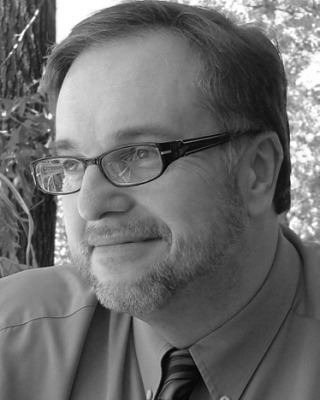|
A General Model of Temporal Discounting Based on Two Value Systems—1:30 pm-2:15 pm |
| Saturday, March 26, 2011 |
| 1:30 PM–4:45 PM |
| Plaza Ballroom |
| Area: SCI; Domain: Experimental Analysis |
| Instruction Level: Intermediate |
| CE Instructor: Warren Bickel, Ph.D. |
| Chair: Warren K. Bickel (Virginia Tech Carilion Research Institute) |
| SAMUEL MCCLURE (Stanford University) |
 Samuel McClure received his Ph.D. in neuroscience from Baylor College of Medicine in 2003. From there he completed postdoctoral training at Princeton University before moving to Stanford University as an Assistant Professor in 2007. McClure's work has combined behavioral, computation, and neuroimaging methods to investigate the neural basis of reward processing and decision making. More recently, he has focused on the neural mechanisms of delay discounting, describing the processes by which we evaluate goods that are available in the future. Samuel McClure received his Ph.D. in neuroscience from Baylor College of Medicine in 2003. From there he completed postdoctoral training at Princeton University before moving to Stanford University as an Assistant Professor in 2007. McClure's work has combined behavioral, computation, and neuroimaging methods to investigate the neural basis of reward processing and decision making. More recently, he has focused on the neural mechanisms of delay discounting, describing the processes by which we evaluate goods that are available in the future. |
| Abstract: Intertemporal choices, which require selecting between rewards available at different points in time, are ubiquitous in everyday life. People and other animals apply a premium for acquiring rewards sooner, and temporal discount functions of numerous varieties have been used to characterize these preferences. This presentation aims to account for the tremendous variance in discount rates (both within and between subjects) observed in experiments on intertemporal choice. In the end, this presentation will argue that a two systems model provides a superior account of behavior than does the standard hyperbolic discounting model. Furthermore, the two systems model is grounded in terms of neural function and makes important new predictions that may inform interventions to affect discounting. |
 Michael Platt is director of the Center for Cognitive Neuroscience and professor of neurobiology, evolutionary anthropology, and psychology at Duke University. His research focuses on the neuroethology and neuroeconomics of human and nonhuman primate behavior and cognition. Michael uses a broad array of techniques, including single neuron recordings, microstimulation, and neuropharmacology in behaving monkeys; eye tracking in free-ranging primates and birds; brain imaging in humans; and genetic association studies to understand how the brain makes decisions in uncertain and socially complex environments. Michael's research is motivated by ethology, evolutionary biology, and economics, with a focus on how specific features of the physical and social environment have shaped both decision-making and biology in different species. Michael received his BA from Yale and his Ph.D. from the University of Pennsylvania, both in biological anthropology. He then did a postdoctoral fellowship in neuroscience at New York University. His work has been supported by the National Institutes of Health, the Klingenstein Foundation, the Sloan Foundation, the McDonnell Foundation, the EJLB Foundation, Autism Speaks, and the Department of Defense. Michael�s research has been featured in the New York Times, Washington Post, Wall Street Journal, Newsweek, and National Geographic, as well as on ABC's Good Morning America, NPR, CBC, BBC, and MTV. Michael Platt is director of the Center for Cognitive Neuroscience and professor of neurobiology, evolutionary anthropology, and psychology at Duke University. His research focuses on the neuroethology and neuroeconomics of human and nonhuman primate behavior and cognition. Michael uses a broad array of techniques, including single neuron recordings, microstimulation, and neuropharmacology in behaving monkeys; eye tracking in free-ranging primates and birds; brain imaging in humans; and genetic association studies to understand how the brain makes decisions in uncertain and socially complex environments. Michael's research is motivated by ethology, evolutionary biology, and economics, with a focus on how specific features of the physical and social environment have shaped both decision-making and biology in different species. Michael received his BA from Yale and his Ph.D. from the University of Pennsylvania, both in biological anthropology. He then did a postdoctoral fellowship in neuroscience at New York University. His work has been supported by the National Institutes of Health, the Klingenstein Foundation, the Sloan Foundation, the McDonnell Foundation, the EJLB Foundation, Autism Speaks, and the Department of Defense. Michael�s research has been featured in the New York Times, Washington Post, Wall Street Journal, Newsweek, and National Geographic, as well as on ABC's Good Morning America, NPR, CBC, BBC, and MTV. |
| Abstract: Whether you are a person driving home from work, a monkey foraging for food, or a rat navigating a maze, unexpected changes in the world require a shift in behavioral policy (rules that guide decisions based on prior knowledge) and potentially promote learning. Changes force individuals to draw upon reinforcement learning, task set switching, and attention, among other processes. The loci of change detection and subsequent policy adjustment within the brain remain unidentified. We propose that the posterior cingulate cortex (CGp) (a central node in the brain's default network) plays a key role in altering behavior in response to unexpected change, and in particular promotes exploration of alternative strategies. I will present evidence that neuronal activity in CGp varies with learning, memory, reward, economic risk, and task engagement. Further, I will show that increased activity in this area promotes exploration and predicts the speed of learning, and electrical stimulation in this area provokes sampling of alternatives. These observations suggest default network areas may be crucial for initiating transitions between basic modes of behavior, or even overriding them to generate new approaches to the world. Consistent with this model, a number of neuropsychiatric and neurological disorders, including depression, anxiety disorders, schizophrenia, Alzheimer's disease, and Parkinson's disease are associated with default-network dysfunction. These observations endorse the idea that a healthy CGp is necessary for organizing flexible behavior in response to an ever-changing environment, by mediating learning, memory, control, and reward systems to promote adaptive behavior. |
 Dr. Warren Bickel is a professor at the Virginia Tech Carilion School of Medicine and Research Institute and directs the university's Center for Substance Abuse. Dr. Bickel's research interests include translational research on dysfunctional decision making and its repair as it applies to addiction and to health behaviors. Dr. Bickel strives to break new ground in understanding addiction and human behavior and has been a pioneer in the application of behavioral and neuro-economics to the study of addiction. Dr. Bickel's research examines delay discounting, decision making, reward processing, and risk behavior, and the translation of the knowledge gained into effective addiction treatment programs. Dr. Bickel earned his Ph.D. at the University of Kansas and conducted his postdoctoral training at the University of North Carolina and Johns Hopkins University. Dr. Warren Bickel is a professor at the Virginia Tech Carilion School of Medicine and Research Institute and directs the university's Center for Substance Abuse. Dr. Bickel's research interests include translational research on dysfunctional decision making and its repair as it applies to addiction and to health behaviors. Dr. Bickel strives to break new ground in understanding addiction and human behavior and has been a pioneer in the application of behavioral and neuro-economics to the study of addiction. Dr. Bickel's research examines delay discounting, decision making, reward processing, and risk behavior, and the translation of the knowledge gained into effective addiction treatment programs. Dr. Bickel earned his Ph.D. at the University of Kansas and conducted his postdoctoral training at the University of North Carolina and Johns Hopkins University. |
| Abstract: Recently a new theory has been proposed to address addiction, referred to as the Competing Neurobehavioral Decisions Systems Theory. This hypothesis specifies that addiction results from hyperactive impulsive systems (associated with the limbic and para-limbic brain regions) and hypoactive executive systems (associated with the prefrontal cortex). This provides a new conceptual system by which to examine a variety of suboptimal behavior such as addiction, gambling, obesity, risky sexual behavior, and other risky health behaviors. In this presentation, data supporting this new theory will be reviewed as well as the implications for developing new interventions and initial observations regarding these candidate therapies. *Supported by NIDA Grant 5R01DA024080 |
 . . |
| Abstract: Samuel McClure, Michael Platt, and Warren Bickel will participate in a panel discussion and answer questions on the topics presented in Cluster 2. Session Moderator: Warren Bickel |
| Target Audience: Certified behavior analysts, behavioral consultants, behavioral therapists, psychologists, and university faculty. |
| Learning Objectives: available onsite |
|
| |